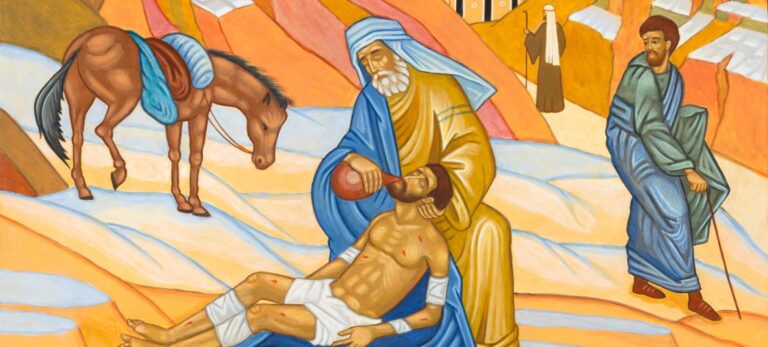
Pope Francis and the Church of Mercy
It’s probably the most famous seagull in the world. You might remember. A year ago today, people filled the square in front of St. Peter’s Basilica in Rome, waiting for the election of a new pope. Millions more watched from their TVs around the globe.
They were all looking at a small smokestack on the chimney of the Sistine Chapel, watching for white smoke to emit, announcing that someone had been chosen to replace Benedict XVI. And suddenly a seagull landed on the chimney. There it stayed, for nearly two hours.
For me, the gull came to suggest anticipation. Who would replace Benedict? To borrow an oft-used phrase, would the new papacy be continuity or discontinuity? Change or status quo? We all waited with the gull, though with much less equanimity.
That evening we were rewarded for our patience. Cardinal Jorge Mario Bergoglio, archbishop of Buenos Aires, Argentina, came out on the balcony of St. Peter’s Basilica. He had chosen the simple name of Francis. His first words: Buona sera!
Good evening? So simple, so refreshing. Then he asked us to pray for him.
Since then the world has been amazed, delighted, shocked and provoked by this least pope-like of popes. For Francis, it is time the Catholic Church became the church of the poor. Time to put away the trappings of privilege and power. Time to embrace a humble life in solidarity with the world’s suffering and needy.
He said many surprising things:
“Who am I to judge?” he shrugged, when asked what he thought of homosexuality.
“We cannot insist only on issues related to abortion, gay marriage and the use of contraceptive methods. This is not possible,” he said in arguing that the church also needs to focus on poverty, injustice and mercy.
“Men and women of the Church who are careerists, social climbers, who use the people, the Church, brothers and sisters — those they should serve — as a springboard for their own ambitions and personal interests do great damage to the Church,” he argued, challenging leaders of the church directly.
But it wasn’t just talk. He also embraced the handicapped, called ordinary people on the telephone to discuss their problems, refused to be driven around in limousines, and opted to live in community in a Vatican residence rather than stay by himself in the papal palace.
His challenges and symbolic actions have also been accompanied by what could be far-reaching reform in the Vatican itself, with dramatic changes to the curia and, in particular, how it handles its finances.
People ask whether the reform is real, whether it goes far enough. Only history will be able to answer those questions. But in a mere 12 months, he has accomplished much, and created a revolution in the world’s attitude toward the church.
One of his early analogies about the role of the Church has stuck with me. He talked about the Church being a field hospital in the middle of a battle. When you’re surrounded by wounded and dying, your first order of business is to take care of them as best you can. Later, when they are healing, you can begin talking about diet and exercise.
As he said, it is much like the Church today. There is so much suffering, on such a vast scale, our first priority should be to offer help, compassion and mercy.
The Church today, says Pope Francis, needs to be a Church of mercy. Is anything more necessary than that?
– Joseph Sinasac, Publishing Director


